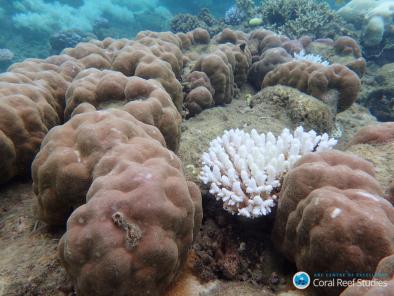Science Source
Dynamics of carbonate chemistry, production, and calcification of the Florida Reef Tract (2009–2010): Evidence for seasonal dissolution
- States that ocean acidification is projected to make it more difficult for calcifying organisms to secrete calcium carbonate and making the environment more favorable for abiotic and biotic dissolution of the reefal framework
- Conducts the first broad-scale geochemical survey of the rates of net community production (NCP) and net community calcification (NCC) across the Florida Reef Tract (FRT)
- Observes that, averaged across the FRT, the rates of NCP and NCC were positive during the spring/summer and negative during the fall/winter
- Finds that the northernmost reef is already net erosional and midreefs to the south were net depositional on an annual basis but erosional during the fall and winter
- Finds that only the two southernmost reefs were net depositional year-round
- Results indicate that parts of the FRT have already crossed the tipping point between being net depositional to net erosional in terms of their carbonate budgets
Related Content
Headline

Apr 18, 2018 | Washington Post
Global warming has changed the Great Barrier Reef ‘forever,’ scientists say
Science Source
| World Weather Attribution
Great Barrier Reef Bleaching, March 2016
Science Source
| Proceedings of the National Academy of Sciences
Ocean acidification affects coral growth by reducing skeletal density
Nathaniel R. Mollica, Weifu Guo, Anne L. Cohen et al
Science Source
| PLOS ONE
Coral physiology and microbiome dynamics under combined warming and ocean acidification
Andréa G. Grottoli, Paula Dalcin Martins, Michael J. Wilkins et al


